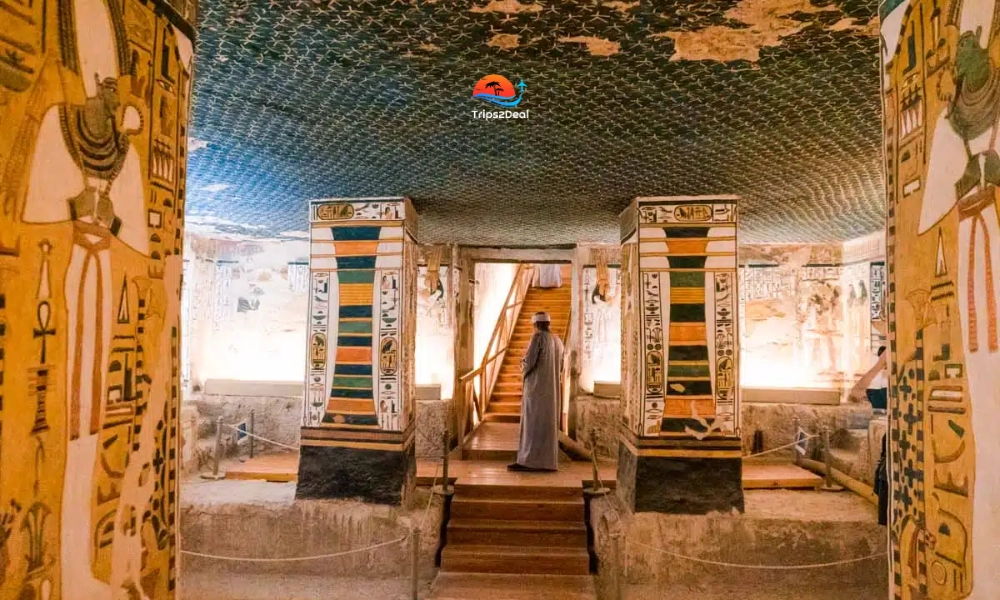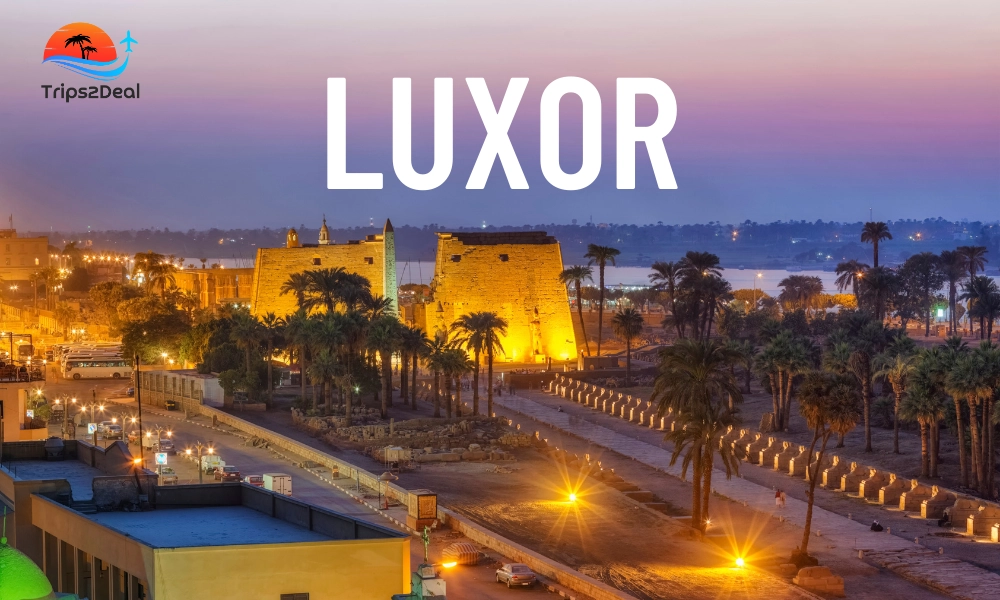Blogs

Valley of Queens
Table of Contents
Introduction:
An archaeological treasure nestled on the west bank of the Nile near Luxor, it's the final resting place for the queens, royal wives, princesses and other elite women of Egypt. As the valley of kings which served for the pharaohs and kings, the valley of queens highlights the respect for the queens and royal women in Egyptian society of the New Kingdom (1550–1070).
-
-
A Royal Burial Site in Ancient Thebes
-
Ta-Set-Neferu is an ancient name that was given by ancient Egyptians which means “ The Place of Beauty ”. Its location in between the tranquil desert landscape provides the perfect eternal rest place, which shows the divinity and glory of the queens that are buried there.
-
-
Importance in Egyptian History
-
As this valley holds over the 91 tombs that are yet discovered, some of them are well preserved that provide us a window into the ancient time of the New Kingdom. The wall art and inscriptions helps archaeologists to understand the cultural, spiritual and the political roles of ancient Egyptian women during the New Kingdom.
Where Is the Valley of the Queens Located?
The valley is situated on the west bank of river Nile and 7 km away on the southwest of the valley of kings. A rugged desert terrain separated these two valleys although both valleys lie in the same general Theban Necropolis area.
-
-
How to Get There
-
You can easily get there by a private car, taxi and joining day trips from Luxor. There are a lot of tour companies in Egypt that cover this site in a full day trip along with valley of kings, hatshepsut temple and colossi of memnon.
History of Valley of Queens
This valley was chosen by the Thutmose I of the 18th dynasty due to its secluded location with respect to getting protection from the tomb robbers. The valley was designed as a sacred site for the burial of the queens near to their husbands burial sites. Over time it was expanded for the prices, princesses and noble women of ancient Egypt.
-
- Tomb of Queen Nefertari
The most powerful pharaoh of Egyptian history Ramses II built a tomb in this valley of his beloved wife which is known as a QV66. This splendor tomb provides the insights of the brilliant art work skills of the ancient Egyptian and is considered as a masterpiece which captivated the archeologists and tourists alike.
-
-
Other Tombs in the Valley
-
There are many tombs in this valley although the notable tombs are the tombs of Prince Khaemwaset, and Princess Tyti. These tombs have amazing artwork and inscriptions which show the afterlife journey guided by the god and goddesses.

Visiting Valley of Queens
If you are going to visit the valley, following information may helps you:
-
- Timing and Tickets
The valley of queens is open daily from 6:00 am to 5:00 pm in summer and 6:00 am to 4:00 pm in winter. There is a standard ticket required for entering the site which includes some tombs priced EGP 220 for the foreigners and EGP 30 for the Arabs / Locals. Although an additional ticket is required if you want to visit the tomb of queen Nefertari.
-
-
Tips for tourists
-
Try to visit the valley in the early morning to avoid the crowd and amazing experience. Bring a water bottle, sun hat and glasses to beat the heat of the desert. Photography is restricted inside some tombs. Wear comfortable shoes because you have to walk to visit the tombs in the valley of Queens.
This site is recognized as a UNESCO world heritage site of ancient Thebes. If time permits you after the visit to the valley of kings you should definitely visit this site for enhancing your historical tour experience in Egypt. As this site provides you a window to look at the women society of ancient Egypt.






